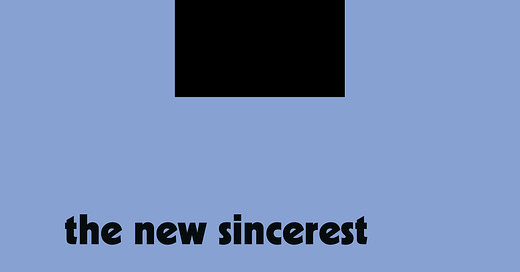Bon Iver is, arguably, having a BRAT level moment. Sure, Bon Iver has been famous in the music industry for well over a decade at this point, but something about their newest record SABLE, fABLE feels a bit different in the cultural conversation in comparison to their past work. Every now and then an album breaks through the noise of the algorithm, draws the ear of most music listeners regardless of genre, and/or recontextualizes an entire artist’s discography to reveal something new and vital that wasn’t considered before. I know, I know, comparing Bon Iver to Charli XCX is maybe an insane claim to make, but hear me out: they’ve been working in the music scene for almost the exact same amount of time (late 2000s), birthed new interpretations of their respective genres alongside key collaborators (Bon Iver with a raw and unvarnished take on indie rock, Charli XCX with bubblegum pop adrenalized by rave culture), and circled the mainstream in ebbs and flows throughout their career (Bon Iver has more frequently come close to that mainstream center over the years, but their idiosyncratic choices have just as frequently pushed them back out). In the summer of 2024, Charli XCX’s BRAT, against all odds, managed to finally pierce that mainstream veil instead of just circling it, memes and high profile performances and Grammy Awards all solidifying it as a cultural moment; with the reception Bon Iver is receiving for SABLE, fABLE, I wouldn’t be surprised if Justin Vernon (the mastermind behind Bon Iver) will have a similarly impactful year.
But… why? Why is SABLE, fABLE resonating so deeply with people right now? Is it the return of recession music, which doesn’t just include the pop of the late 2000s but also its singer-songwriter fare, its pop punk, its R&B? Is it Justin Vernon’s masculine sensitivity in a culture currently grappling with an administration driven by male hubris? Is it that Vernon has managed to update Bon Iver’s sound to be more in conversation with the likes of Mk.gee, ML Buch, and Dijon (all artists clearly inspired by his 2011 self-titled record)? I’d argue it’s a bit of all these things, but maybe one more factor: adult contemporary is having a major cultural reevaluation right now.
If adult contemporary as a genre term doesn’t read familiar to you, the music will certainly sound familiar: think of the soft rock and pop that soundtracks the aisles of grocery stores, the hits of yesteryear piped into clinical waiting rooms, the bestsellers in Barnes and Noble music departments. A radio format that began in the 1960s and 1970s, adult contemporary is defined by its focus on melody and harmony, lush instrumental arrangements, sentimental but mature lyricism, warm and approachable production, and an inoffensive sensibility; because of this, adult contemporary is less a sound (although it certainly has sonic hallmarks) and is more of an ethos, a vibe-as-umbrella that myriad genres can fall under. Adult contemporary has often been mocked and parodied, especially in the internet age, yet my age demographic, late-era Millennials (and early-era Generation Z) was raised on it in the 1990s. For example, most people of my age group will probably remember this late night commercial after falling asleep on the couch and waking up at 2am:
Which brings us to our current moment: raised on this radio format and looking to its past for inspiration, aforementioned artists like Mk.gee, ML Buch, Dijon, Bon Iver, and many others are taking the hallmarks of the adult contemporary genre and distorting it through blasts of noise, experimental production, strange hybridizations with other genres, and unfiltered lyricism. To listen to modern interpretations is to hear less a pastiche or copy of the genre, but rather a memory of the genre itself, its style warped and confused by remembrance or the sensation of looking at a faded photograph or the compression of an illegally downloaded MP3 via Limewire (or your other favorite pirating software of the early 2000s). Take Wet’s “Close Range”, which looks at new motherhood and failing relationships with anxiety but also hope, Kelly Zutrau’s vocals impressionistic swaths of color; or the immense spoken word meditation of Cassandra Jenkin’s “Delphinium Blue”; or the sprawling and jazzy outro of Destroyer’s “Cataract Time” which grapples with entering the twilight years of life. To make sense of a disorienting world, sentimentality and sincerity is perhaps needed, but it has to be juxtaposed against the disorientation, the rupture, to draw meaning from it.
For this week’s episode of The New Sincerest, Bon Iver’s SABLE, fABLE acts as a spring board into the many reinterpretations of the adult contemporary radio format, exploring modern day peers and formative ‘90s influences on the genre, ultimately arguing for this musical style’s importance in our current cultural landscape.















Share this post